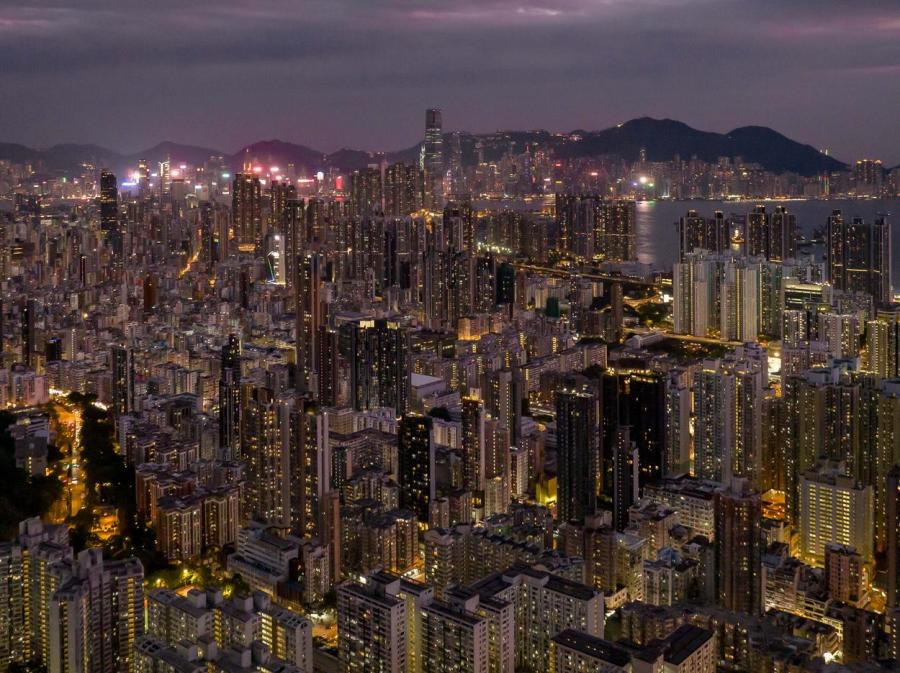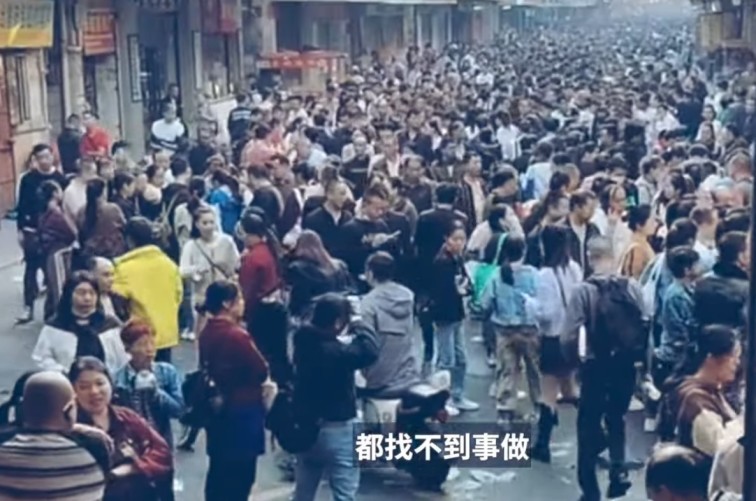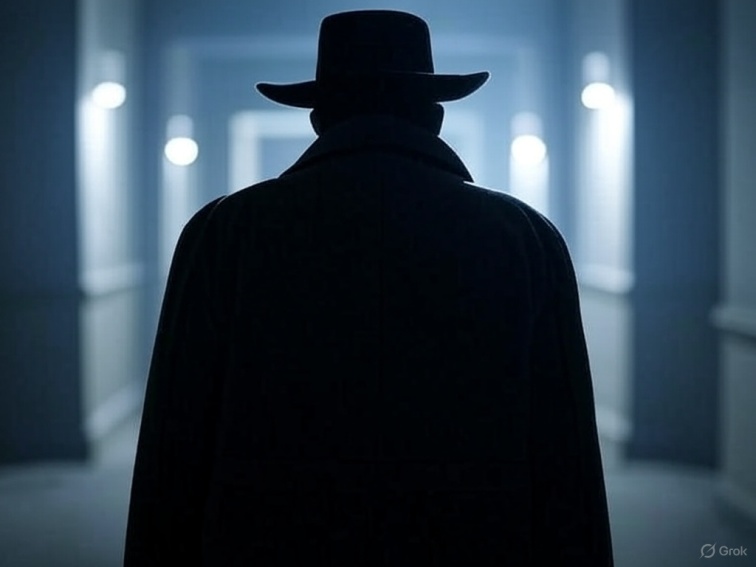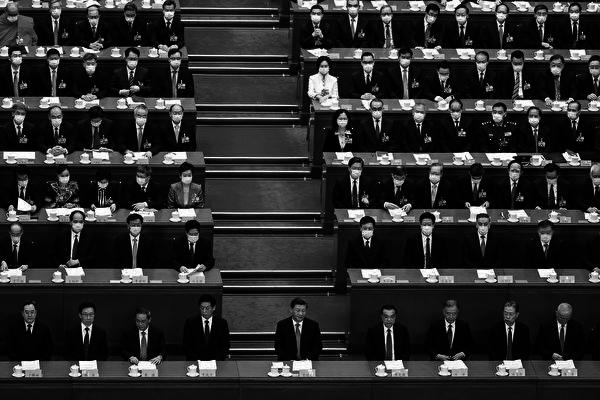Pictured is a cityscape of Hong Kong. (Photo by Anthony Kwan/Getty Images)
[People News] Following the implementation of the National Security Law, many residents of Hong Kong have dispersed, while several independent media outlets and some pro-democracy figures have chosen to stay in the city. Unfortunately, they have become targets of the regime. The Hong Kong government is suspected of leveraging public authority to impose additional tax burdens on independent journalists, and former pro-democracy district councilors are believed to have been dismissed and faced performance cancellations due to being placed on a blacklist. Radio Free Asia has interviewed several victims of 'Chinese-style suppression' in Hong Kong, who have recounted how they continue to uphold their beliefs despite the challenging circumstances.
As reported by Radio Free Asia, Zheng Jiayu, who has been the chairperson of the Hong Kong Journalists Association (hereinafter referred to as the Journalists Association) for less than a year, remains a target. Last year, she and dozens of journalists experienced systematic harassment, stalking, and threats. This year, she, along with at least 20 individuals from eight independent media outlets and organisations, has come under scrutiny from the tax bureau, which is reviewing income and taxes from seven years ago.
Zheng Jiayu stated: 'It is unfortunate that my identity as a journalist implicates my family.'
Zheng Jiaru told Radio Free Asia that seven years ago, while working at Hong Kong 01, her monthly salary was just 18,000 Hong Kong dollars. Recently, the tax bureau unexpectedly reviewed her tax payments from that time, unilaterally raising her reported annual income from 230,000 to 630,000 Hong Kong dollars without any evidence, and demanded that she pay a substantial amount in back taxes. Zheng Jiaru noted that while the tax bureau has the authority to randomly check the tax status of Hong Kong residents, there are thousands of media workers in the city, with independent media and journalists making up only a small minority. The individuals selected for these audits happen to fall within this group. She also pointed out that she is the only journalist being audited whose parents are also under tax investigation. Zheng Jiaru suspects that her identity has made both her and her family targets.
Zheng Jiaru remarked, 'I certainly have doubts about whether the tax bureau's actions are connected to my role in the Journalists' Association. However, the tax bureau has not provided any explanations, leaving me unaware of the reasons and motives behind the tax investigations of me and my parents. This is not the first time my family has been affected; last September, my family also faced harassment and intimidation related to journalists and their families. I can only say that the current situation is very unfortunate. In the past, as a journalist, I did not have to worry about whether my family would be implicated due to our work, but now it seems we must consider this, which will undoubtedly hinder journalists from working comfortably.'
Zheng Jiaru stated that the methods of suppression against independent journalists are continually evolving. Standing at the forefront, she has not retreated in the face of various forms of oppression and has registered to run in next month's executive committee election of the Journalists' Association, seeking re-election as chairperson to continue advocating for the Hong Kong journalism community.
Affected journalists: When harassment and stalking prove ineffective, public power is employed to suppress from multiple angles.
The independent journalist known as Chris, similar to Zheng Jiaru, faced harassment and threats last year and is now undergoing a tax audit this year. He pointed out that it is widely recognised that journalists in Hong Kong receive low salaries and poor treatment, with independent journalists earning even less. He recounted his shock when he saw a five-digit figure on the tax bureau's notice for back taxes, exclaiming, 'I wish I could earn that much money too.' He finds the authorities' actions absurd and feels angered by the use of public power against journalists, experiencing a sense of being wronged and slandered. This is clearly a targeted action by the regime against independent journalists.
Chris remarked, 'Last year, when we (journalists from various independent media) were being followed and harassed, there was no solid evidence linking it to official suppression; we could only wonder how these individuals obtained personal information that only the government should have. The current tax audit is clearly a tactic by the regime aimed at us (independent journalists), targeting those who are not favoured by the government. It appears they have a systematic approach, employing both overt and covert methods; after stalking and harassment proved ineffective, they have turned to public departments to pursue us. I previously heard that some independent media were approached by the Companies Registry and the Labour Department for information, and now it has escalated to the tax bureau. This indicates a systematic and regulated strategy, gradually increasing the pressure.'
He expressed that anyone choosing to be an independent journalist in today's Hong Kong is mentally prepared for potential trouble from the authorities. Before facing arrest or prosecution, he intends to stay committed to his role and report the truth.
Affected journalists: More heartbroken than angry about Hong Kong's decline.
The independent journalist using the pseudonym A is among the victims of the recent tax investigation; he has appealed against the recovery of a five-figure tax amount. In an interview with Radio Free Asia, he stated that the tax bureau's current practice is to impose penalties before any review, meaning that, regardless of the outcome of his appeal, he must first pay the back taxes. He also mentioned that he has spent several thousand dollars trying to obtain his bank transaction records from seven years ago to prove his innocence. He likened his experience to being beaten 30 times before even facing a judge and expressed his sorrow over Hong Kong's decline.
Journalist A remarked, "After this incident, I feel more heartbroken than angry, because the tactic of using tax evasion as a pretext to pursue tax payments is a common method employed by the Communist Party to suppress dissent, which we are all too familiar with. Compared to the freedom, civilisation, and democracy in China, it is truly disheartening to see the regime targeting ordinary citizens in Hong Kong with such tactics. It makes one wonder how Hong Kong has come to this point."
He emphasised that this incident has not diminished his resolve to continue his work as a journalist; instead, he believes that in the face of media and civil society suppression, journalists should remain steadfast. If journalists back down under pressure, there will be no one to speak out for the oppressed ordinary citizens, and no one to bring their injustices to light.
Chen Jianqin: Though weak, words should not be empty or silent.
Beyond the media, the pro-democracy faction remaining in Hong Kong has also become a target for the authorities. Former pro-democracy district councillor Chen Jianqin (陈剑琴) recently revealed on her Facebook page that she believes she is being suppressed. In an interview with Radio Free Asia, she explained that she was initially set to participate in a theatre group's performance at the end of May. However, the theatre received an unexpected request stating that they could not use government venues unless she was replaced, which forced her to withdraw from the performance. On the same day, she also received a termination notice from her part-time lecturer position, citing that several senior officials at the school had received a simplified Chinese complaint letter about her. This letter only informed them of the decision to dismiss her without disclosing the details of the complaint. Chen Jianqin emphasized that these two incidents occurring on the same day are not isolated, criticizing the school's actions as unreasonable and indicating that a blacklist system is indeed functioning in Hong Kong.
Chen Jianqin remarked: "I feel that the suppression is intensifying. Last year, I was still able to perform at government venues, but this year, when I saw my name on the list of actors, I was told it was not allowed. This proves that I, Chen Jianqin, have become someone prohibited from using government venues. Even if this is not made public, I believe the government maintains such a blacklist. This kind of list will lead the arts community to impose their own restrictions, limiting who they can collaborate with. The situation at the school is even more pronounced, as a teacher was dismissed based on a complaint letter that cannot be disclosed. This approach targets individuals rather than addressing issues, and it aims to erase the names of people like Chen Jianqin from society."
Chen Jianqin remarked that her past as a pro-democracy district councillor, along with her arrest under Article 23 of the Basic Law during last year's June Fourth incident, has resulted in her being labelled a sensitive figure in today's Hong Kong, despite not facing any charges. Her experiences in engaging in non-political activities or work are not unique; many others in Hong Kong share similar fates.
Chen Jianqin stated, 'This situation affects not just me, but many others as well. If you have a history of participating in political or social movements, or have been arrested or imprisoned because of such movements, you will find yourself in a comparable situation when trying to reintegrate into society in Hong Kong. This is all a result of Article 23. Article 23 has fostered a climate of fear in society, and in a culture of reporting and complaints, many organisations and businesses will quickly exclude anyone who appears to be connected to national security or has been labelled as sensitive, effectively stripping us of our rights to participate equally in society.'
Chen Jianqin emphasised that, as she noted in a post on her Facebook page, even if her voice is weak and her words may seem insignificant, they are not without meaning. She will not let herself be erased from society due to her dismissal and withdrawal; she will not remain silent in the face of injustice, nor will she act anonymously.











News magazine bootstrap themes!
I like this themes, fast loading and look profesional
Thank you Carlos!
You're welcome!
Please support me with give positive rating!
Yes Sure!